As this is written, less than 18 months remain before Formula 1’s total regulatory reset ahead of the sport’s ‘new era’ under Liberty Media. Not only are the technical, power unit and sporting regulations coming in for swingeing changes in 2021, but the sport’s revenue distribution structure and governance procedure also being reviewed.
Add to this the introduction of the much-vaunted, long-promised financial regulations (aka a cost cap), and the sport faces arguably the most comprehensive set of year-on-year rule changes in its 70-year history – all aimed at reducing costs while spicing up the spectacle with closer racing.
On paper this bodes well for fans, particularly those who dozed through such torpid races as the recent French Grand Prix and have tired of endless Mercedes domination. But the initiatives are unlikely to provide a rapid cure for the enormous damage inflicted on F1 through the greed and avarice of the sport’s previous owners, the CVC Capital Partners venture fund.True, an enormous amount of time, expense and energy has been invested in aerodynamic research by Liberty, with a number of teams providing additional input and data via studies undertaken outside of their current wind tunnel and CFD allocations, while Pirelli will soon commence testing of its 18-inch tyres. The power unit regulations were largely agreed last July, so are at least 90 per cent there.
However, the process has been fraught and did not get off to the best of starts, with shuttle diplomacy by bigwigs in Montreal culminating in a four-month delay to the end of October rather than inflicting incomplete technical regulations on the sport by adhering to the 30 June deadline as prescribed by the FIA’s International Sporting Code.
In terms of the ISC such a delay required unanimous agreement from all teams, which in turn provided the independent teams with the leverage required to insist that all parties waived their rights to challenge the current cost cap level of $175m, and, crucially, the list of agreed exclusions as outlined previously.
In addition, the regulations provide for aggregate capital expenditure limits of $36m the first three years under the cap, and indexed adjustment thereafter. Consider that it pans out at an average of $3m per month, then wonder how many independent teams can afford those sums, which amount to over $180m over the five-year stability period…
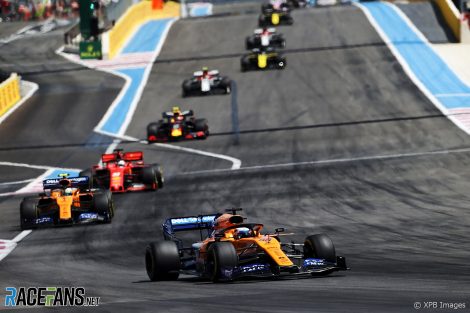
Still, fans can only hope that the additional time is spent wisely, for numerous drivers have suggested that this year’s aerodynamic changes, introduced as precursor to 2021 designs, have hardly – if at all – aided overtaking. While it is all very well to point to the scintillating race that was the Austrian Grand Prix, the race was an exception, not an example, and a number of factors came together to deliver such a fest.
The issues currently facing F1 have not so much been created by poorly-framed regulations, but rather by a convoluted governance process that makes change virtually impossible to effect unless it favours the major teams. Worse, short-term implementation requires unanimous agreement at F1 Commission level before potential changes even reach the FIA World Motorsport Council for ratification. Herding 10 stray cats seems decidedly easier.
F1 has suffered from an inability to react speedily and decisively where necessary, in turn creating knock-on effects all the way down the line which ultimately manifest themselves on-track. These issues were then compounded by an inequitable revenue structure that paid, for example, McLaren 33 per cent more prize money for placing ninth than Renault received for fourth!
Advert | Become a RaceFans supporter and
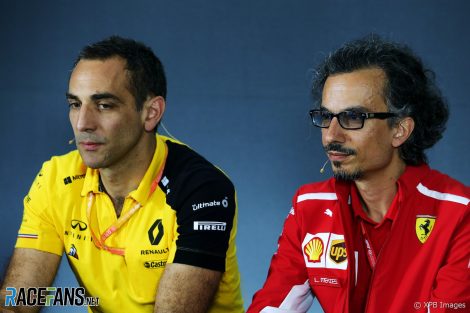
“Those two things, we believe, in the medium to long term are what is going to improve Formula One in terms of overall competitiveness of the grid. 2021 change of technical regulations: for me, it’s a different story. That why the focus, as far as we’re concerned, is more on the financial side.”
In fact, so lop-sided is the 2013-20 revenue structure that was inflicted on the sport by CVC that Ferrari could retire both cars at the end of the first lap of every grand prix between 2013 and 2020, yet still receive greater shares of F1’s revenues than would an independent team winning both titles for eight years consecutively. Any wonder, then, that F1 finds itself in its current state?
Thus F1’s post-2020 priority should not be primarily focussed on the technical or sporting regulations, but to ensure that F1’s regulatory and revenue frameworks are fit for purpose, with last-named comprising not only more equitable prize money schedules, but also enforceable financial regulations that not only restrict spend to manageable levels, but enable transgressors to be swiftly dealt with in the event of breaches.
After all, effective regulatory processes would enable any technical or sporting shortcomings to be rapidly identified and corrected, but no amount of fancy research and hand-wringing will achieve the same objective if necessary rule changes are bogged down by red tape and exclusion of half the grid from the process, as has been the case since 2013.
All forms of non-performance-related bonuses – whether the regulations permit these to be spent directly on car performance or not – ultimately defeat the objective of the 2021-on regulations, namely to foster close racing. Equally, in an activity in which revenues and performance are directly linked, such payments goes against the spirit of equal and fair competition.
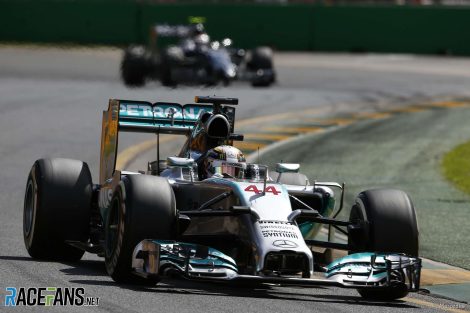
Thus it makes little or no sense cap costs, then pay a select few – or even one team – a form of bonus that is used to procure the services of top drivers or acquire cutting-edge facilities – both of which are excluded from the cost cap, but ultimately provide inherent performance advantages that the rest of the grid cannot afford? How can drivers such as Lewis Hamilton or Max Verstappen not be performance differentiators?
It is, after all, one thing to procure sponsorship through sweat; another entirely to receive ‘heritage’ payments of up to $50m per annum – and yet that is on the cards, for Ferrari at least. Ditto the Scuderia’s long-standing veto: what sense in totally revamping the post-2020 governance process while granting one team a veto right, even if diluted from its current form?
There are fears amongst independent team bosses that ‘alliance building’ amongst groups of teams – such as, say, Ferrari/Haas and Sauber, Mercedes/Racing Point and Red Bull/Toro Rosso – could leave some out in the cold, particularly as such alliances could mix and match unlisted performance-differentiating parts that demand extensive development.
While the Financial Regulations make provision for inter-team transaction to be reported and controlled, these calculations do not take into account the manpower and resource time to develop such items, thus freeing the other alliance members to concentrate on performance development.
Advert | Become a RaceFans supporter and
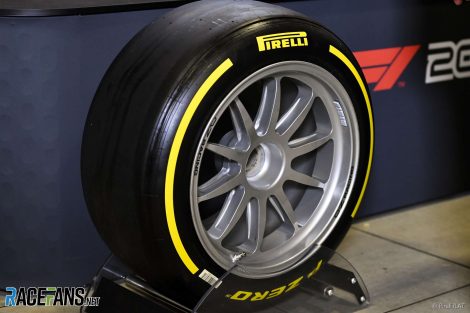
Under the proposal the F1 Commission will be cut back from 26 current members, consist only of the teams with a vote each, and the FIA and Liberty, each with a block of ten votes – thus 30 votes total. An exception will be made for power unit regulations changes, when each of the engine suppliers will have a vote in addition to the main voting bloc, whether they are team-owned or not.
Under the proposals, a simple/super majority (83/93 per cent respectively) will apply for changes before/after 30 April for the following season, with unanimity required for in-season changes except for safety-related issues, which the FIA may impose without the need for a vote. This contrasts sharply with the current 70%/unanimity structure.
However, the revision means that race promoters, the tyre supplier, technical partners and sponsors will no longer be represented on the Commission, although they will be able to voice their opinions and provide input on matters that pertain to them via a series of working committees.
While this is undoubtedly a step in the right directions – in the past race promoters voted, for example, on wing endplate changes, while tyre suppliers had a say in fuel specifications amendments – the mere fact that teams collectively have input equal to that of the governing body or commercial rights holder means the process could potentially still bog down. Not to the same degree as previously, but still..
Go ad-free for just £1 per month
>> Find out more and sign up
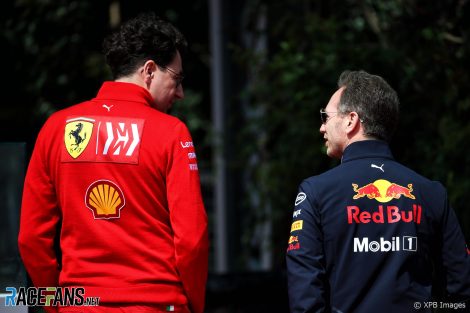
“Trying to get consensus between teams that have got varying objectives, different set-ups, is going to be impossible,” Red Bull racing boss Christian Horner said even before the (ultimately delayed) draft package was presented in June.
“So it’s down to the commercial rights holder and the FIA to get together, come up with a set of regulations — what is the financial framework, what is the distribution that they want to have — put it on the table and it’s down to the teams whether they want to sign up to that or not.”
In contrast with likes of Lewis Hamilton and Nico Hulkenberg, who insists that drivers should be consulted on regulations changes, Max Verstappen echoed his team boss’s sentiments of the FIA/Liberty dictating the rules.
“I guess [the solution] is to find a way where not every team starts speaking for their own advantage,” said Verstappen during the Austrian Grand Prix. “Because at the end of the day, even with new rules coming at the moment, everybody is just speaking for their own advantage.
“Maybe it’s just better to leave out all the teams from the discussions and just say these are the rules and you deal with it.”
Let us consider the implications of team involvement, using 2021, F1’s first ‘new era’ season, as example: After a handful of races rule changes are deemed necessary or desirable for whatever reasons, but the 30 April deadline for 2022 has passed. Certain teams believe change could jeopardise them, so hold F1 to ransom not only for the rest of 2021, but 2022 as well. Sound familiar?
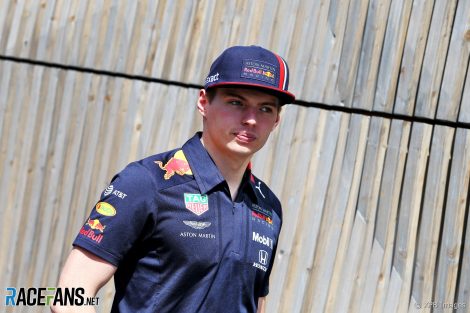
During its pre-CVC days F1 operated under a ‘benevolent’ dictatorship, so why not return to such a system rather than continue with a democratic structure, albeit much simplified, that arguably led F1 up its current creek? Sure, there is a chance that one or teams will threaten to leave, but ultimately F1 will be better off than being held to regulatory ransom. Now more than ever before, is the time for Liberty to display courage.
That, in a nutshell, is the singular challenge facing Liberty as it squares up for the post-2020 era, the first for which F1’s commercial rights holder has direct responsibility: While the proposed regulations and processes are marked improvements on those it inherited from CVC, there are justified fears within the paddock that they simply do not go far enough to correct the myriad imbalances under which F1 currently labours.
The sport has four months to refine its proposals, and for the sake of F1 and its millions of fans, one can only hope that time is spent wisely.
RacingLines
- The year of sprints, ‘the show’ – and rising stock: A political review of the 2021 F1 season
- The problems of perception the FIA must address after the Abu Dhabi row
- Why the budget cap could be F1’s next battleground between Mercedes and Red Bull
- Todt defied expectations as president – now he plans to “disappear” from FIA
- Sir Frank Williams: A personal appreciation of a true racer




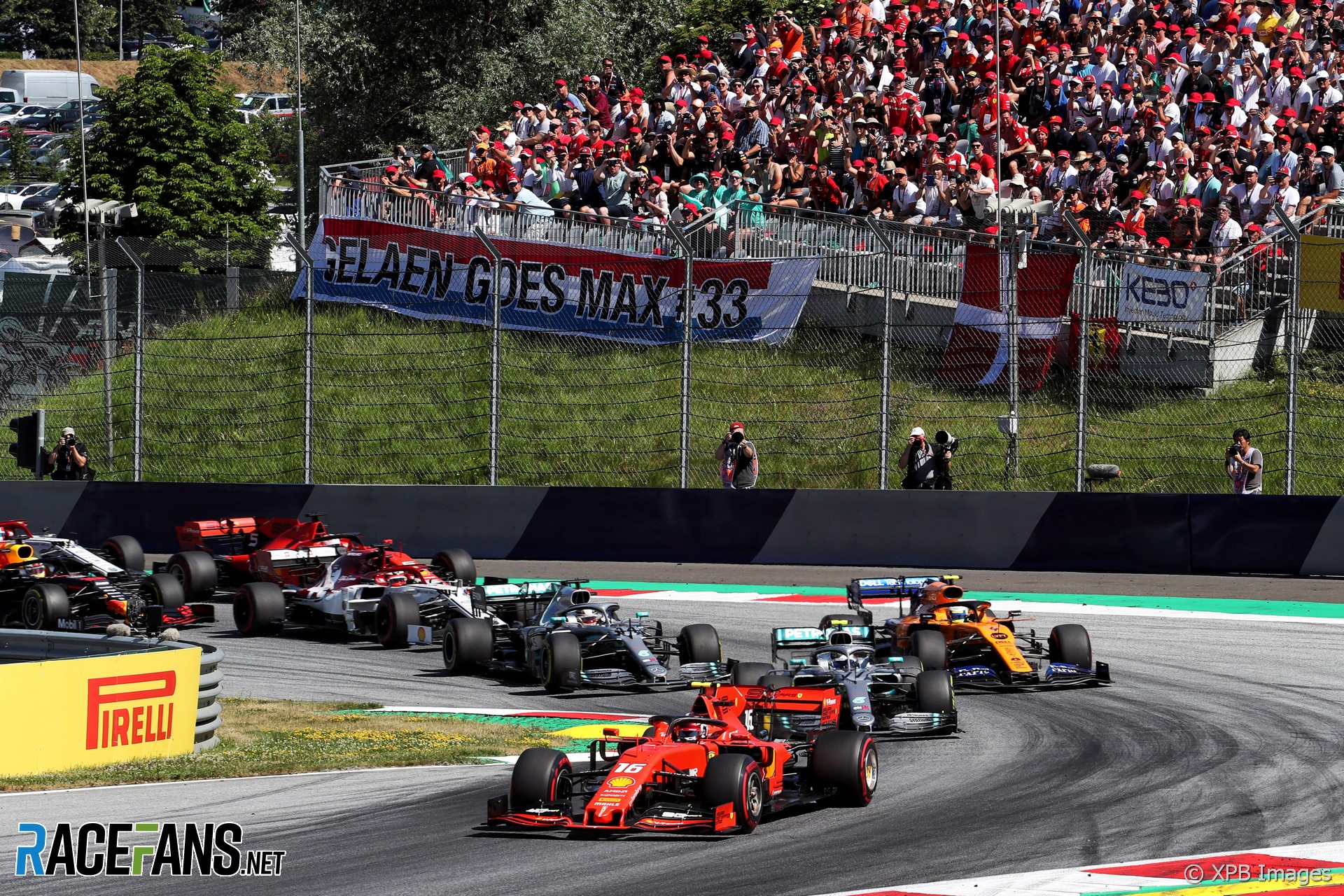
Jere (@jerejj)
10th July 2019, 12:49
More precisely since round 2 of 2013, the infamous multi-21 Malaysian GP only Mercedes, Ferrari, and RBR have won races, so this streak now sits at 127 consecutive races, and will probably keep on growing at least until the end of this season probably even till the end of next.
MEGATRON M12 (@megatron)
10th July 2019, 13:34
So what? Why is that a big deal? How is that any different than in any other era of F1? That is part of the nature of F1, if you don’t like it then go watch something else rather than change the fundamentals of F1 that make it great.
F1 is prototype racing, not spec racing, prototype racing gives varied equipment, but it is also open to domination, can’t have one without the other. Even in spec racing such as Indycar or F2 you get a situation where the big teams dominate, like Penske, Gannasi and Andretti winning over 90% of the races over the last 5 years or more.
The grid is currently closer than it has ever been, in the past teams dnq because of the 107% rule, while now Williams who are in a distant last place are easily within 104%.
Darryn Smith (@darryn)
10th July 2019, 15:15
Well said @megatron. To be honest I am glad there are three competitive teams. There have been many a year with just 1.
Pironi the Provocateur (@pironitheprovocateur)
10th July 2019, 19:35
Apart from all the other arguments, I found the last one especially misleading – and I have read it several times in the recent months. No, the field is not closer than it has ever been. Check the race weekends from 10-15 years ago. Most of the teams were compressed withing one second in the quali and had fairly competitive racepace (compared to this period), and a driver who lost more than 1.5 seconds (qualifying) was almost deemed hopeless. 2 seconds off the pace and you’re far behind the rest of the field. Now compare this to present situation. 1.5 seconds is a gap between the top and the rest, and it has become a norm.
I think @hobo beneath me has explained the situation just well. There’s no point of basing your argument on a clear fan bias. F1 has become too one-sided and stale.
hobo (@hobo)
10th July 2019, 15:54
Just going to reply to @megatron (apt name) and (@darryn) here. The big deal is that there is no other era of F1 like this. This is NOT par for the course. McLaren in the 80s fell off after their 2 years of dominance, as did Williams in the 90s. Ferrari in 2000s and RBR in 2010s had years interspersed in their runs where they did not dominate and their championships were barely won. Merc has faced no such year since 2014. In RBR’s 4yr streak, 2 WDCs were won by single digits. The closest non-Merc driver to a Merc WDC was 2017 and the gap was 46pts.
We’re not on year 2. We’re on year 6, and with a guaranteed Merc WDC/WCC double, and a very very possible 7th year in 2020. Think of any other sport where a team dominated, without hiccup, for 6-7 years. If you can find one in the past 50 years, please look at whether the regs were left undisturbed. I dare say you won’t find such a run, but if so, I imagine rules were shook up.
No one is blaming Merc for achieving success. But not everyone wants to watch it for a decade straight. And while some of you (clearly) don’t care about seeing actual competition week to week, enough do that F1 should consider listening.
anon
10th July 2019, 17:54
@hobo, Audi and the 24 Hours of Le Mans comes to mind, where their dominance there makes the dominance of Mercedes in F1 look modest by comparison.
From 2000 to 2008, Audi won the 24 Hours of Le Mans eight times in a row – now, on paper the 2003 race officially went to Bentley, but the Bentley Speed 8 was really just an Audi R8 with a different badge, so it was an Audi victory in all but name. In fact, from 2000 to 2014, only once did Audi fail to win the 24 Hours of Le Mans (in 2009, when Peugeot won).
Some of those victories were also ridiculously dominant as well – people complained about Toyota being too dominant when they won by just 6 laps this year, but there were times when Audi was winning the 24 Hours of Le Mans by over 20 laps.
You also had periods of similar dominance by Porsche in the 1980s, with Porsche winning the World Sportscar Championship back to back five years in a row, whilst Porsche dominated the 24 Hours of Le Mans from 1981 to 1987 inclusive, with seven successive back to back victories and up to a third of the entire grid was Porsche Group C cars. Throw in the customer Porsche GT cars and second hand sportscars that Porsche also sold, and at times nearly half the grid wore the Porsche badge – domination not just in terms of victories, the sheer weight of numbers and the leverage that gave them over the rule makers meant Porsche used to utterly dominate sportscar racing in a way that Mercedes is not even beginning to approach.
hobo (@hobo)
10th July 2019, 18:22
@anon – Okay, what happened? (this is an actual question.) Did they try to find ways to address the disparities? Or did they just turn the other way and say, “well, they did the best job so we have to sit here until they either burn out their advantage or just leave the sport from boredom.”? I know that there have been a lot of shakeups in LeMans and endurance racing regs over the years, so I would be surprised if they didn’t attempt to change things at the time. Though, honestly, I don’t know.
But you don’t usually see this in other sports (non-racing) because they have tried to somewhat level the playing field. And this level of dominance has not existed in F1 in at least the past 50 years, if ever.
I don’t think anyone expects a season where all 10 teams can compete for wins. As nice as that may (or may not) be, it isn’t realistic. But when only 3 teams can win a race, only 2 can realistically have a shot at a title some of the time, and only 1 wins for 6 years in a row, things need to change.
Alex
10th July 2019, 22:24
Very well said Hobo. When these current regs started Mercedes had a huge advantage as they had been preparing their engine and overall package for years in advance. Hamilton knew this and it was the reason for his move there – he even said as much. Such was this advantage that its already lasted for 6 years and will likely remain so until the regs change.
Niefer (@niefer)
10th July 2019, 23:32
Great points by @hobo, @megatron and @pironitheprovocateur!
I don’t see a big deal with a domination, however, the reduced possibility of catching up is something that bothers me. I mean, sometimes I wonder had testing still been out there, Honda/McLaren/Renault would be in better shape. Even Williams, albeit just as with Renault, the problem here would be the leading personnel.
Heck, since rule makers like to plaster things so tight, maybe giving penalties according to mileage covered. A driver that reaches some distance, gets some places in the starting grid. I’m no fan of that kind of penalties, but for the sake of development I’d endure it gladly.
anon
11th July 2019, 11:25
@hobo, they actually didn’t really make any effort to kerb the dominance of those teams in that period – in fact, in some instances the ACO actively encouraged and helped create that very dominance in the first place.
In the 1980s, sportscar racing became semi-dependent on Porsche’s dominance and relied on Porsche propping up the series by selling customer 956 and 962 chassis – that process drove out several of the traditional independent manufacturers, but the sport came to rely on Porsche pumping money in until, eventually, the ACO was able to begin luring in some other manufacturers to start reducing their dependence on Porsche.
The ACO didn’t want Porsche to leave, and indeed probably couldn’t afford for Porsche to leave at that time – so they did just sit back and left Porsche more or less to it until somebody else could finally come in and match Porsche in terms of spending power.
In the case of Audi, in that case you could say that it was a similar case of the ACO not just allowing itself to be captured by a wealthy manufacturer, but actively seeking that position. Audi entered at a time when most of the manufacturers in the sport had left – Toyota and BMW were heading to F1, and the VW Group basically bribed Porsche not to enter (they promised to help them develop their road car models, and especially the Macan, which is one of Porsche’s biggest money spinners these days, in return for Porsche cancelling the 9R3, aka the Porsche LMP2000 – a car that Porsche then spent over 15 years denying ever existed, although they do now publicly acknowledge that it existed).
The ACO was basically desperate for a manufacturer entry to give the sport the cachet they aspired to, and also needed the money that Audi brought in. Audi helped pay for upgrades to the Circuit de la Sarthe, paid for events promoting the 24 Hours of Le Mans and helped to sponsor sportscar racing in the 2000s, and indeed the VW Group remained one of their big sponsors until they finally pulled out a few years ago – the current economic contraction of the World Endurance Championship now is because of the withdrawal of the VW Group.
As a result, there were more than a few occasions where the ACO did not just fail to kerb the dominance of Audi, they actively flouted the rules or even bent the rules in their favour. When Audi wanted to introduce the diesel powered R10, the car was expected to be overweight – so, two weeks before the start of the season, the ACO suddenly announced that they were increasing the weight limit, a move that even Audi admitted seemed to be designed to help them out.
In fact, I believe that Gerard Neveu, the head of the ACO, was once asked if the ACO was deliberately favouring diesel powered entries – which was basically just Audi at the time – and he actively admitted that the ACO was biased in their favour. They didn’t just sit there, they helped introduce rules that actively encouraged Audi’s dominance because they wanted to keep Audi on board to make sure that the money kept coming in.
erudite450
11th July 2019, 13:06
Why are you backing your arguments with cold hard facts? Why wouldn’t you rather look at history with rose-tinted glasses like everyone else?
Joe
10th July 2019, 13:06
“In fact, so lop-sided is the 2013-20 revenue structure that was inflicted on the sport by CVC that Ferrari could retire both cars at the end of the first lap of every grand prix between 2013 and 2020, yet still receive greater shares of F1’s revenues than would an independent team winning both titles for eight years consecutively. Any wonder, then, that F1 finds itself in its current state?”
And largely 2021 onwards as well given how little the money changes.
hobo (@hobo)
11th July 2019, 1:49
@Joe – That was one of the most sobering lines of the story. Anyone who doesn’t see the need for a better/fairer allocation of money is willfully choosing not to at this point.
DAllein (@)
10th July 2019, 13:27
F1 doesn’t need and didn’t need a revolution.
F1 needs only a fix for a Financial structure\Revenue distribution for teams, to make the sport sustainable for small\independent entries.
Robbie (@robbie)
10th July 2019, 13:33
No the cars need a revolution too. Make a better product on the track and that should attract buzz, attention, more money for the entity, more sponsors ie. more support for the smaller teams from without F1, not just from within.
DAllein (@)
10th July 2019, 15:23
I don’t agree about cars.
Modern cars are fantastic.
Yes, they require some tweaks, maybe a new general philosophy to close up racing a bit, but I wouldn’t call it a revolution (rather an “evolution”), and neither I think giant changes are needed.
Especially not in the line of stock parts.
Robbie (@robbie)
10th July 2019, 22:26
Well the cars are going to be changed more to the tune of a revolution rather than an evolution regardless of whether you think they just need a tweak. I think giant changes are coming for 2021, as in, a whole new philosophy of cars that make less wake and need less clean air anyway. And no drs. Today’s car nearly totally depend on clean air, as they have for a long time, and now it is time for something completely different.
Stephen Crowsen (@drycrust)
10th July 2019, 19:09
Yes, F1 does need to do something. While no one has actually said it, the current situation does make F1 less credible as a sport. To be credible every team needs to be able to turn up with equitable equipment, but currently that just isn’t happening. Maybe we haven’t noticed it until someone points it out, but when every race for the last 5 years has been won by one of six drivers out of 20+ drivers, then there’s a problem. In 2014 only 3 drivers stood on the top step of the podium, and two of them were from Mercedes. Maybe that was acceptable for 1 year then, when the new technical regulations had come into force, but here we are 5 years later and, so far this year, only 3 drivers have stood on the top step of the podium.
The fixing of the revenue distribution is the easiest way to start equalising performance. The cost cap is there to make it even more equitable.
Robbie (@robbie)
10th July 2019, 13:31
I’m encouraged by all this. It was always going to be difficult and complex to correct things from particularly BE’s last decade with CVC, they are addressing everything, and it would be foolish to expect everything to be perfect come race one of 2021. But the bottom line is that they are addressing all aspects and that can only help the entity of F1, even if some aspects need to be walked into the new era and it’s initial years, such as caps, while others can be abruptly changed, such as the cars and tires, and money distribution immediately in 2021. From what I surmise, any potential snags remaining in this complex process are far outweighed by all the good that can come from these sweeping changes and that which the teams already seem for the most part quite on board, with the likes of Horner and Max even saying ok now the teams have had their say so now keep the teams out of it and just set the rules, will ya. And they will. And they won’t be perfect. But what a much better baseline to work from in 2021 than that which BE left Liberty.
ADUB SMALLBLOCK (@waptraveler)
10th July 2019, 13:49
I’m not expecting a “revolution”, only an improvement year on year. I don’t expect lower tier teams to have much of a chance of winning, this is not a “spec” series. What I hope for is that lower teams will have a better chance of survival, that new teams will be more encouraged to join F1 (I would LOVE to see a full field!) and that midfield teams will have a better chance of the odd win in “upset” races.
Joao (@johnmilk)
10th July 2019, 13:49
There is nothing wrong with F1
F1 is boring
F1 needs a revolution
Revolution is written down, just needs implementation
The proposal doesn’t give any reassurances
Proposal is implemented anyway
There is nothing wrong with F1
*repeat*
Phylyp (@phylyp)
10th July 2019, 14:18
Does F1 need a revolution?
I think an equitable revenue distribution is the biggest change that F1 needs, and most of it that is playing out fairly. Better tyres and the ability to follow easily are two more things that would be good to see. The “better tyres” bit is somewhat unknown – but seeing as Pirelli have won the contract, one hope the FIA can set more stringent targets for them.
We don’t have 10 teams competing with each other, but as a lot of people who’ve followed F1 for a while have said, such extensive competition was often quite rare. And I’m not going to be upset if team #1 and #10 aren’t battling it out.
We do have groups of teams capable of competing with one another, though. The “big three” all have big automotive names behind them, and budgets to match. If they get their act together, we could be having a proper three-way fight. And their whole “getting their act together” has little to do with Liberty and 2021.
Likewise, in the midfield, we have another two automotive marques of Renault and McLaren duking it out, and showing us how much fun it would be if Ferrari/RBR were able to meaningfully challenge Mercedes.
Then we have a group of financially challenged teams who’re roughly on similar footing also having fun fighting it out – Alfa Romeo, Toro Rosso (with some more big wallet backing), Racing Point and Haas (with corporate/investor backing). For the purpose of this comment, let’s set Williams aside – their problems are more endemic, and are again not primarily caused by the structure of the sport.
anon
10th July 2019, 18:14
@phylyp, the thing is, quite often it feels as if people either expect a “silver bullet” solution that will solve everything or proclaim that they have a “silver bullet” solution where they want to say “just change this and everything will be fine”, and to some extent I wonder if this article falls into the same mistake.
There seems to be an inherent contradiction, whereby fans will complain that changes are not big enough, and then at the same time will also be critical of the rules changing at a time when teams are converging in performance – even when those changes are a result of the pressure that those fans put on the sport in the first place.
erudite450
11th July 2019, 13:07
Seriously stop it! Stop making sense! :)
F1oSaurus (@)
10th July 2019, 15:38
Wow that has to be the dumbest thing I have read on this site. This is wrong on so many levels. Just wow.
Joao (@johnmilk)
10th July 2019, 16:08
@f1osaurus what is wrong about it?
F1oSaurus (@)
10th July 2019, 20:08
@johnmilk For starters, the bonus payments started way before 2014. The prospectus clearing up the structure for the whole world, came out in 2010, but clearly Ferrari has been getting bonuses way before that
Worse still, the team with the most wins, ie Mercedes, only started getting real bonus money AFTER they started winning. Or rather BECAUSE of that. They receive a bonus for being in the top 3 of most wins over the previous three years (CCB) and a bonus for winning championships successively. That’s on merit ie as a result of …
So it’s like claiming that taking aspirin gives you headaches. Since it’s a well know fact that people who suffer from headaches take more aspirin than people who don’t have headaches.
Then how about McLaren and Williams who are claimed to receive the same Bonus payments. They haven’t won a single race. How odd.
Or simply the nonsense of pretending that a $30 million bonus is the difference in making a team into a race winner. Of course it’s not that those three big teams have a budget of $300 to $350 million more than the rest of the teams, no it’s obviously that small bonus payment that makes the difference.
Plus a lot more ways that this is dumb, but I can’t be bothered to try and explain all. Above should be enough to be embarrassed it’s even suggested in the article.
F1oSaurus (@)
10th July 2019, 20:09
What’s up with this site?
@johnmilk For starters, the bonus payments started way before 2014. The prospectus clearing up the structure for the whole world, came out in 2010, but clearly Ferrari has been getting bonuses way before that
Worse still, the team with the most wins, ie Mercedes, only started getting real bonus money AFTER they started winning. Or rather BECAUSE of that. They receive a bonus for being in the top 3 of most wins over the previous three years (CCB) and a bonus for winning championships successively. That’s on merit ie as a result of …
So it’s like claiming that taking aspirin gives you headaches. Since it’s a well know fact that people who suffer from headaches take more aspirin than people who don’t have headaches.
Then how about McLaren and Williams who are claimed to receive the same Bonus payments. They haven’t won a single race. How odd.
Or simply the nonsense of pretending that a $30 million bonus is the difference in making a team into a race winner. Of course it’s not that those three big teams have a budget of $300 to $350 million more than the rest of the teams, no it’s obviously that small bonus payment that makes the difference.
Plus a lot more ways that this is dumb, but I can’t be bothered to try and explain all. Above should be enough to be embarrassed it’s even suggested in the article.
Qeki
10th July 2019, 15:40
Let’s think the races so far this season. We had had pretty much boring races so far. For example Bahrain and now Austria were something more. While Silverstone got the deal it got me thinking if there is a fear that cars won’t change enough to make the grid more even and produce better racing why not race at circuits that are more likely to produce exiting races than the others. Melbourne is a great city and a perfect place to start a new season but it’s not so good track to race/overtake. There are few tracks which there is normally a good bunch of overtakes. Why not start the season Austria and then move on to Hockenheim, Silverstone, Cota, Interlagos etc..
It doesn’t have to be 20+ races in a season I think 15 races could do the trick and there should be enough tracks to fill up the calendar and make every race a solid 7.5/10.
Bridge Wilson (@gwbridge)
10th July 2019, 16:15
I agree with Dieter Rencken’s analysis of the situation. I think it is well-reasoned and accurately describes the present state of F1 and a number of changes that would greatly benefit the sport if implemented. The current structure of F1 is highly contrived and, to a large extent, both ineffective and illogical. In my opinion, statements to the effect that the status quo is just fine come from people who are enjoying watching a handful of teams dominate while the rest of the field function merely as grid fillers. This is an outlook that is indistinguishable from that of the dominant teams who are quite happy to maintain a status quo where they enjoy advantages and sit in the catbird’s seat. Fans supporting the status quo are driven by team loyalty rather than by an interest in producing a fully competitive and vital F1.
Ipsom
10th July 2019, 16:30
+1
grat
11th July 2019, 19:46
Different viewpoint: The Austrian grand prix wasn’t that exciting. It was obvious from practice and qualifying that Mercedes was out of the picture. Gasly and Vettel never really challenged for the win, so again, we came down to two drivers in the last 10 laps of the race. That’s not much different than what we’ve seen this year.
Bahrain was a much more interesting race.